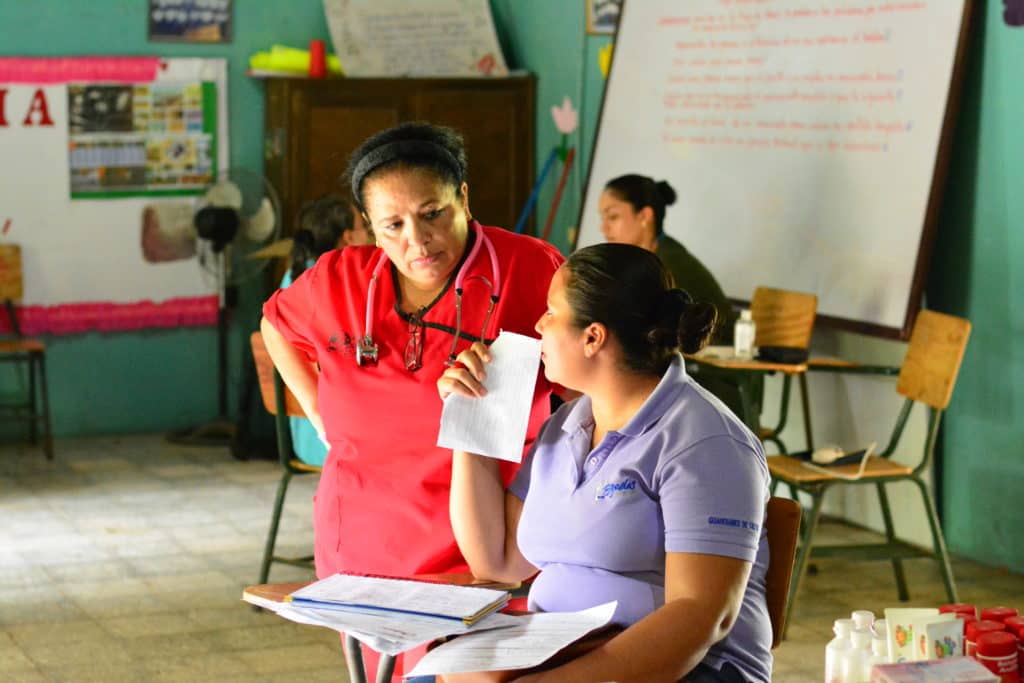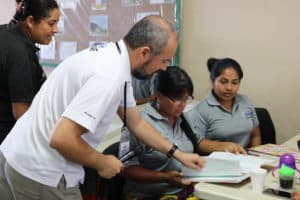HEALTH CARE ACCESS
The Honduran government provides two different types of health centers throughout rural Honduras: Centros de Salud Médico Odontológico (CESAMOs) and Centros de Salud Rural (CESARs). CESAMOs are the larger of the two, often found in municipalities, and typically have at least one physician on staff at all times with nurses and potentially a dentist. CESARs are found sporadically in rural communities and generally have a single nurse available. Even with this coverage, it is important to note that medications, supplies, and materials are often not available in these health centers and the physician density in Honduras remains around 1,220 people for every one doctor. According to the World Health Organization, there should be a maximum of 435 people per physician to qualify a country as having adequate access to medical attention.
The community of El Rodeo does not have access to a health care center in their community and community members need to travel to the nearest communities to obtain health care access. It is not always adequately staffed nor does it always have adequate medications in stock. The most common illnesses children face are the common cold and respiratory issues. The most common illnesses seen in adults are hypertension and the common cold.


 COMMUNITY HEALTH WORKERS
COMMUNITY HEALTH WORKERS The Global Brigades Business and Microfinance Team started working with the already-established community bank in February 2021. The in-country team is currently training the executive board members to ensure the bank’s sustainability and access to outside loans. This will encourage the opening of savings accounts, and growth of seed capital, and upon the completion of six months of executive board training, the Community Bank will begin giving out loans to bank members to spur economic growth and home improvement projects.
The Global Brigades Business and Microfinance Team started working with the already-established community bank in February 2021. The in-country team is currently training the executive board members to ensure the bank’s sustainability and access to outside loans. This will encourage the opening of savings accounts, and growth of seed capital, and upon the completion of six months of executive board training, the Community Bank will begin giving out loans to bank members to spur economic growth and home improvement projects.